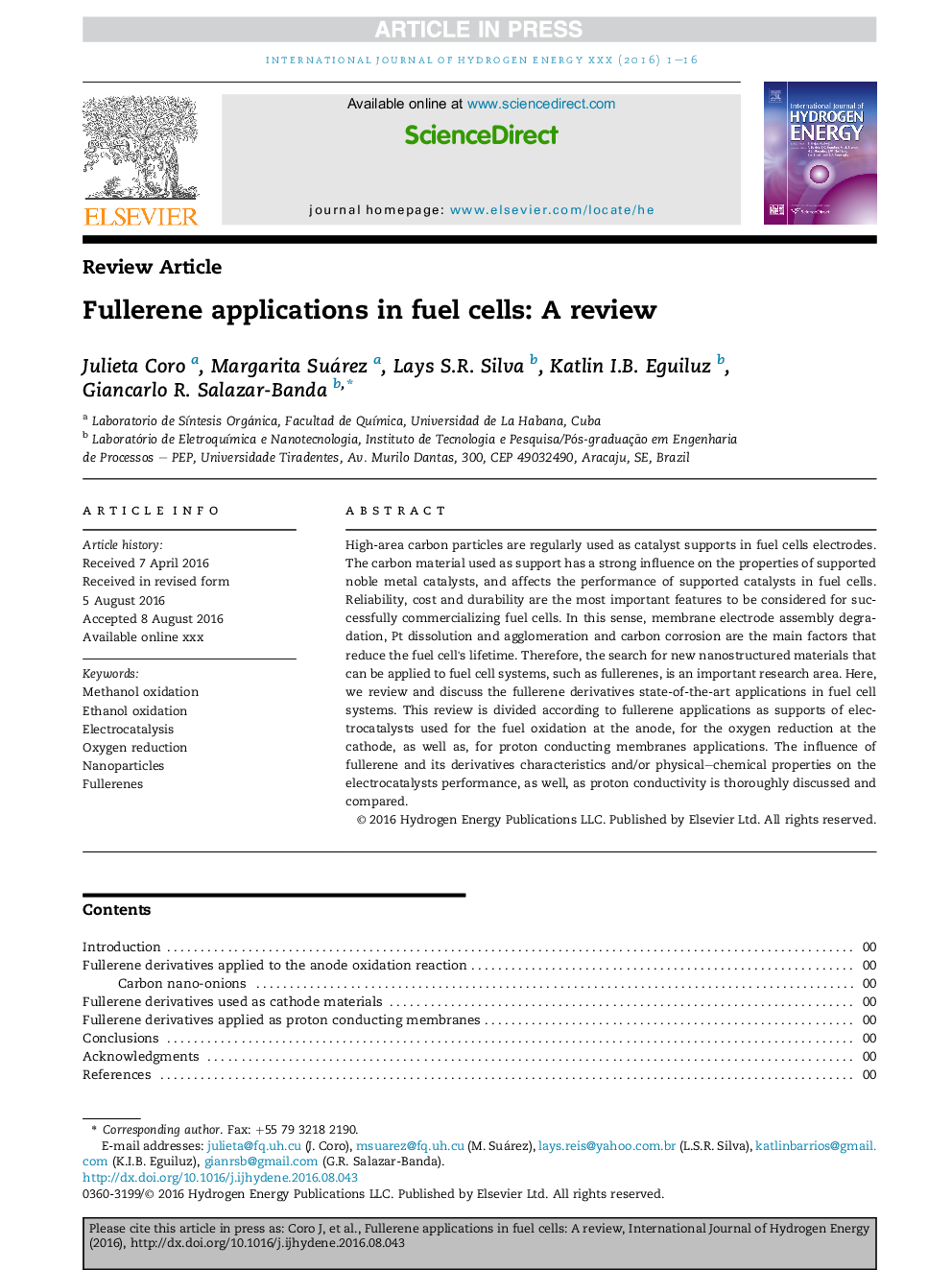| Article ID | Journal | Published Year | Pages | File Type |
|---|---|---|---|---|
| 5147540 | International Journal of Hydrogen Energy | 2016 | 16 Pages |
Abstract
High-area carbon particles are regularly used as catalyst supports in fuel cells electrodes. The carbon material used as support has a strong influence on the properties of supported noble metal catalysts, and affects the performance of supported catalysts in fuel cells. Reliability, cost and durability are the most important features to be considered for successfully commercializing fuel cells. In this sense, membrane electrode assembly degradation, Pt dissolution and agglomeration and carbon corrosion are the main factors that reduce the fuel cell's lifetime. Therefore, the search for new nanostructured materials that can be applied to fuel cell systems, such as fullerenes, is an important research area. Here, we review and discuss the fullerene derivatives state-of-the-art applications in fuel cell systems. This review is divided according to fullerene applications as supports of electrocatalysts used for the fuel oxidation at the anode, for the oxygen reduction at the cathode, as well as, for proton conducting membranes applications. The influence of fullerene and its derivatives characteristics and/or physical-chemical properties on the electrocatalysts performance, as well, as proton conductivity is thoroughly discussed and compared.
Related Topics
Physical Sciences and Engineering
Chemistry
Electrochemistry
Authors
Julieta Coro, Margarita Suárez, Lays S.R. Silva, Katlin I.B. Eguiluz, Giancarlo R. Salazar-Banda,
